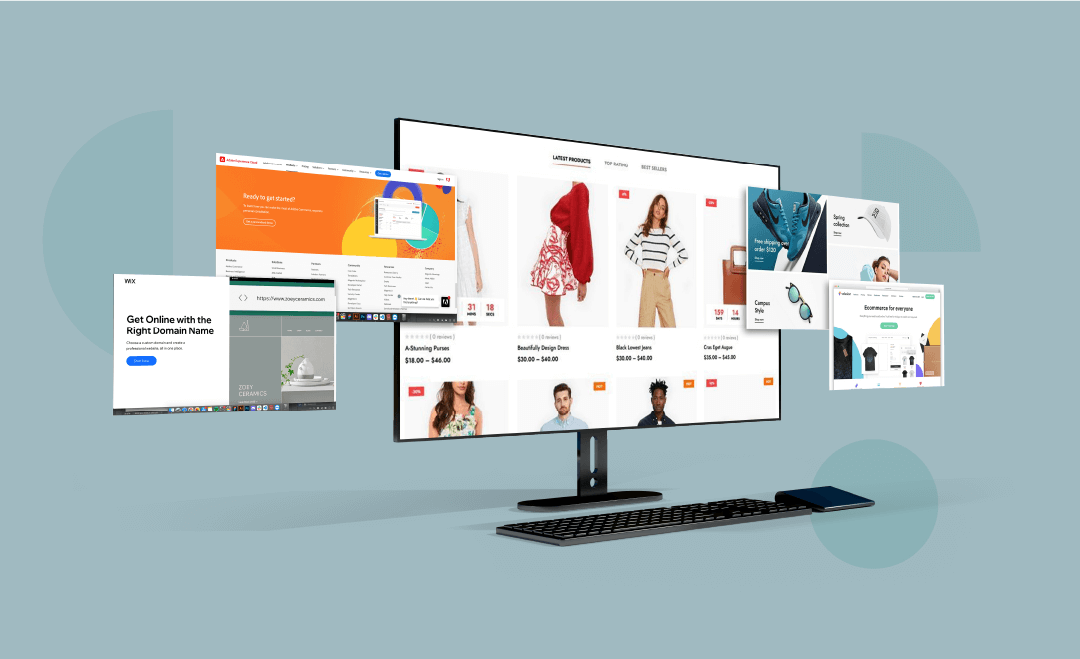In the fast-paced world of online retail, having an eCommerce website isn’t enough—you need a site that captures attention, fosters trust, and drives sales. That’s where the best eCommerce website designers come in. These professionals combine creativity and technical expertise to craft online stores that stand out from the competition. This article explores why eCommerce website designers are essential, what features make a site successful, and how to find the perfect designer for your business.
Why Professional eCommerce Website Designers Matter
Creating an online store might seem straightforward with platforms like Shopify, WooCommerce, and Magento offering user-friendly templates. But a professional designer can elevate your eCommerce site to new heights.
The Role of eCommerce Designers in Boosting Conversions
eCommerce website designers do more than just create visually appealing sites; they optimize the entire shopping experience to convert casual visitors into loyal customers.
- Enhanced User Experience (UX): Designers create intuitive layouts, making navigation seamless for users.
- Strategic Call-to-Actions (CTAs): They position CTAs like “Add to Cart” and “Checkout” for maximum impact.
- Visual Storytelling: High-quality images and graphics help showcase your products in the best light.
Common Pitfalls of DIY eCommerce Websites
While DIY platforms are tempting, they often lack the finesse and functionality of professionally designed sites.
- Limited Customization: Templates can restrict creativity, making your site look generic.
- Technical Issues: Without expertise, you might encounter slow loading times or poor mobile compatibility.
- Missed Opportunities: SEO optimization and advanced analytics are often overlooked in DIY setups.
Key Features of a High-Converting eCommerce Website
Design is about more than aesthetics. Functionality and performance are critical for converting visitors into customers.
Mobile Responsiveness and Fast Loading Times
With mobile commerce on the rise, your site must perform seamlessly on all devices.
- Responsive Design: Ensures your site adapts to various screen sizes.
- Quick Load Speeds: A delay of even one second can result in lost sales.
Seamless Navigation and User-Friendly Layouts
A well-designed navigation system guides users through the shopping journey.
- Clear Categories: Products should be grouped logically for easy access.
- Search Functionality: A robust search bar helps users find what they need quickly.
What to Look for in the Best eCommerce Website Designers
Not all designers are created equal. Here’s what to consider when choosing one:
Experience in Diverse Industries and Platforms
A skilled designer should have experience working with various industries and eCommerce platforms like Shopify, WooCommerce, and BigCommerce.
- Industry-Specific Insights: Designers familiar with your niche can tailor solutions to your audience.
- Platform Expertise: They should know the ins and outs of the platform you prefer.
Proven Success Stories and Client Testimonials
A reputable designer will have a portfolio showcasing their work and client reviews.
- Case Studies: Look for examples of how they’ve improved sales for other businesses.
- Positive Feedback: Strong testimonials indicate reliability and expertise.
Top Trends in eCommerce Website Design
Staying ahead of the curve is crucial for keeping your site competitive.
Incorporating AI and Personalization Features
Today’s customers expect personalized experiences when shopping online.
- AI Chatbots: Offer instant support and recommendations.
- Dynamic Content: Show tailored product suggestions based on user behavior.
Minimalist Design and Focus on User Intent
Less is often more when it comes to eCommerce design.
- Clean Layouts: Reduce distractions to focus attention on products.
- Simplified Checkout: Streamlined processes increase conversions.
How to Choose the Right eCommerce Website Designer for Your Business
Finding the perfect designer involves research, planning, and clear communication.
Defining Your Goals and Budget
Before reaching out to designers, clarify what you want to achieve and how much you’re willing to invest.
- Goals: Do you need a complete redesign, or just tweaks to an existing site?
- Budget: Be realistic about what you can afford, but remember that quality work is an investment.
Questions to Ask Before Signing a Contract
Interview potential designers to ensure they’re the right fit for your project.
- What’s Your Design Process? Understanding their workflow can help set expectations.
- Do You Offer Post-Launch Support? Ensure they’ll be available for maintenance or updates.
- Can You Provide References? Speaking to past clients offers valuable insights.
Conclusion
Your eCommerce website is the backbone of your online business, and its design can make or break your success. The best eCommerce website designers combine creativity, technical skill, and industry insight to build stores that not only look great but also drive results. By focusing on user experience, embracing the latest trends, and hiring the right professionals, you can create a store that truly sells.
Invest in your future by partnering with the best designers and watch your online business thrive.
FAQs
What makes a great eCommerce website designer?
A great designer has a strong portfolio, technical expertise, and a focus on creating user-friendly, high-converting sites.
How much does it cost to hire an eCommerce website designer?
Costs vary based on the project’s complexity, but most professional designers offer flexible pricing packages.
Can I use a template for my eCommerce website instead of hiring a designer?
While templates are cost-effective, hiring a designer ensures a unique, fully optimized site tailored to your business.
How long does it take to design an eCommerce website?
Timelines depend on the project scope, but most sites take 4-12 weeks to design and launch.
Do eCommerce designers also handle marketing?
Some designers offer integrated digital marketing services, but it’s best to confirm this during your initial discussions.
What platforms do eCommerce designers specialize in?
Popular platforms include Shopify, WooCommerce, Magento, and BigCommerce, but it’s best to choose a designer experienced in your preferred platform.

